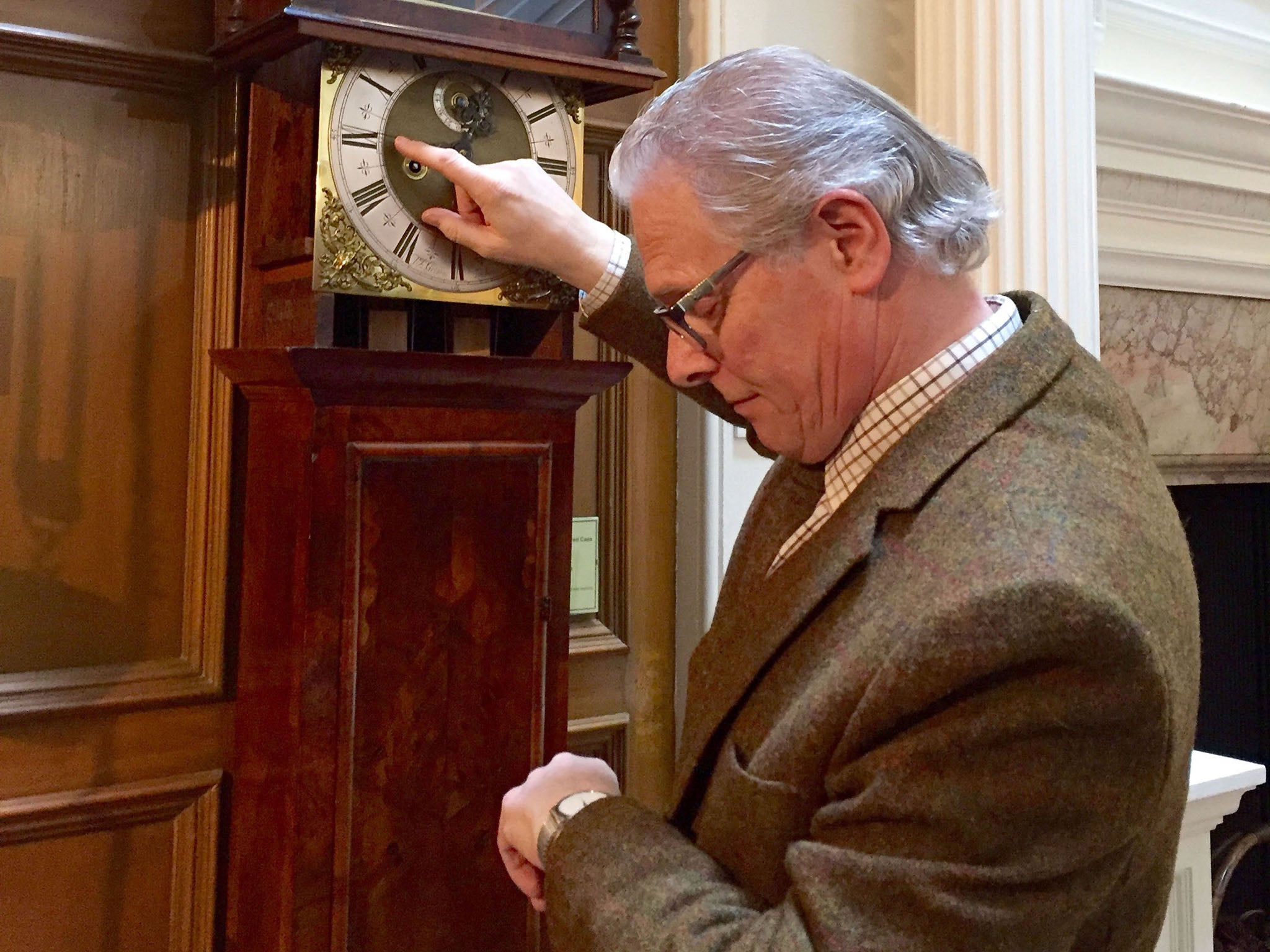Alan Midleton, profile: Horologist responsible for adjusting around 4,000 watches and clocks
This year will mark the 100th anniversary of the country first adjusting the clocks

A race against the clock?
On 27 March, households across the UK will herald the start of British Summer Time by putting their watches and clocks forward an hour. But while for most people it is a two-minute job to change all the timepieces in their house, for Alan Midleton it will take a good while longer. The time enthusiast is curator at the British Horological Institute (BHI) museum trust, meaning he is responsible for winding and adjusting around 4,000 watches and clocks. And this year will mark the 100th anniversary of the country first adjusting the clocks.
In this job, time matters…
And putting them back an hour every spring takes longer than adjusting them for the winter months. Mr Midleton explained: “You can't turn the hands of a clock backwards. People always ask me this and the answer is no. So you've got to go forward 11 hours, and that's why it takes a lot longer in the autumn."
Sounds like it could get out of hand!
Every Tuesday, he winds the timepieces up to keep them running, a job which takes him two hours. And it’s a more complicated procedure than it might sound. "If you wind them on a Monday, there are three or four Bank Holidays during the year and you would fall foul of them and all the clocks would be stopped," he said.
What does the collection include?
Timepieces from the 17th century, a watch once owned by South Pole explorer Captain Scott and the first speaking clock used by the Post Office dating from 1936 are all housed at the BHI’s Nottinghamshire museum.
Why do the clocks go forward?
Adjusting the clocks was first was suggested in 1907 by builder William Willett, who was dismayed at the number of curtains he saw closed while out riding. He put forward ideas for changing the clocks over the summer and the idea was debated by the House of Commons, but Mr Willett died months before he saw his idea brought into use in 1916.
About time too!
Mr Midleton said British Summer Time was brought in as a wartime economy measure. "There was huge opposition until the war came along then suddenly it seemed to be quite a good idea,” he said.
Is one hour enough?
Mr Midleton said calls to introduce Double British Summer Time - where the clocks are two hours ahead of Greenwich Mean Time in summer and one hour ahead in the winter – were growing. "Double British Summer Time has been tried before and abandoned, whether we'll try it again I don't know,” he said. “It was introduced in the Second World War and was quickly abandoned afterwards. It was then reintroduced in the early 1970s as an experiment but it failed and there was a great deal of opposition. People keep trying to reintroduce it."
Subscribe to Independent Premium to bookmark this article
Want to bookmark your favourite articles and stories to read or reference later? Start your Independent Premium subscription today.

Join our commenting forum
Join thought-provoking conversations, follow other Independent readers and see their replies